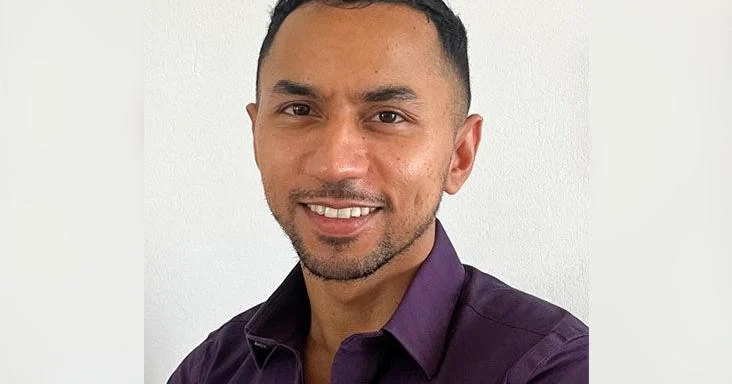By Jarrel De Matas
Copyright trinidadexpress

My column last week (“Bocas Lit Fest amid a literacy crisis”) allows for a smooth transition into specifically AI (artificial intelligence) literacy, which has been living rent-free in my head lately.
AI has become something of a pet project for Prime Minister Kamla Persad-Bissessar. As is sometimes the case with pet projects, the initial excitement of showing off the new pet can overshadow the necessary long-term commitment to care and hard work. Treating AI as a shiny new ini-tiative risks creating more chaos than clarity if there is no plan for how it will be integrated.
The pet has since been palmed off to Minister of Public Administration and (now) Artificial Intelligence Dominic Smith, who I assume is now given the mammoth task of overseeing the many incredible (incredible, as in “difficult to believe”) projects that were touted as part of the UNC’s (United National Congress’) 2025 manifesto under the AI bucket when, in fact, at its most basic, the projects involved digitisation.
The manifesto promises a digital identity (eID), inter-agency data sharing, online tax filing, e-business register, e-Customs, digital medical records, e-school, which will include digital platforms and digital textbooks for each student, and “smart poli-cing” (e-Police). I’ll focus on the promise of e-schools and why before the Government sets its sights on what is at the very least a pipe dream for the foreseeable future, it should address something as basic yet foundational and fundamental: an AI literacy roadmap.
Near the end of the previous PNM (People’s National Movement) administration, I offered free consultation to the Ministry of Education (MoE) in the development of an AI literacy project for secondary schools. Then-minister Dr Nyan Gadsby-Dolly signed off on it (da-ted August 16, 2024). The approval was sent to Chief Educational Officer Peter Smith and since then, radio silence. I assume the change of govern-ment has resulted in a change of heart regarding AI usage in schools—a contradiction for this new Government which promises “AI-assisted tutoring and tailored educational support for each student”.
Since that letter was signed, AI development has advanced considerably. Companies such as Apple Inc and Microsoft have embedded AI in its operating and workflow systems; Apple Intelligence and Copilot, respectively. Governments have drafted regulations—from the European Union’s AI Act, China’s Generative AI Provisions, Canada’s Artificial Intelligence and Data Act (AIDA), and Brazil’s AI Act.
Academic medical centres such as my workplace, University of Texas Medical Branch, have introduced Qualified Health, an AI assistant designed specifically for healthcare environments. And nations such as India have created the SOAR (Skilling for AI Readiness) programme to build AI literacy among pupils from classes 6-12 (the equivalent of Forms 1-6 in Trinidad and Tobago).
In December 2024, Jamaica’s Ministry of Education and Youth unveiled an initiative to integrate AI and adaptive technology into school curricula. While we were preoccupied with renaming ministries and creating mani-festos with flowery language that appears to be written by ChatGPT, our regional neighbour was putting AI into action. Which brings me back to AI literacy. Our school system is in desperate need of re-energisation, and a policy for AI deployment in secondary schools can be used as a roadmap to both guide AI literacy and address a troubling situation.
Mean scores from the 2025 SEA (Secondary Entrance Assessment) exam reveal a troubling situation: mathematics (52.1%), English language arts (66.7%), and writing (56.2%). These numbers tell us that the foundations for literacy are shaky. If we add hasty school exposure to AI without a plan, we risk worsening the problem. With more deliberate and careful AI integration, however, we could strengthen, not substitute, basic literacy skills.
Being ghosted by the MoE was an all-time low for me (I’ve been ghosted in my younger years, but it feels diffe-rent when it happens in your mid-30s). My ideas for an AI literacy rollout in secondary schools, however, remain relevant. They include:
• Curriculum integration—AI should not replace teaching but support it so that, for example, grammar tools become aids for learning rather than shortcuts for students to outsource their critical thinking capacity.
• Teacher training—Teachers must be trained and equipped to use AI and to help students develop critical thinking and reading skills that blend digital and traditional literacies.
• AI benchmarks—The MoE must establish clear benchmarks that might involve competencies such as recognising bias in AI outputs, understanding how AI systems work, and applying AI usage responsibly to assignments.
• Equity in access—Not all schools have reliable Internet or devices. These infrastructural gaps have to be closed before any virtual learning platforms are developed.
• Local context—Students should not only learn to use AI but also to question it. Why might an AI chatbot know little about our history? These discussions make AI literacy inseparable from cultural education.
• Pilot programmes—Finally, any policy should begin with a pilot study across different schools before national expansion to ensure we build AI frameworks responsibly.
These are snippets of much broader ideas that need to be carefully thought out. Regionally, we’re already lagging behind in the AI race. Before rushing hot and sweaty into AI deployment in schools, we need to pause, breathe, and reflect on what it is we want AI to achieve. It could be as simple as improving the decline of basic literacy in secondary-entering pupils. Creating an e-school is not the quick-fix required.
• Dr De Matas is an assistant professor at the University of Texas Medical Branch.



